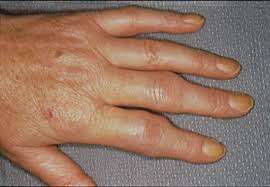
Study Highlights Persistent Pain in Rheumatoid Arthritis Patients Despite Standard Treatment
A recent study published in the Annals of the Rheumatic Diseases reveals that many patients with rheumatoid arthritis (RA) continue to experience significant pain despite receiving standard anti-inflammatory treatments. Conducted by Dr. Christoph Baerwald and his team from the University Hospital Leipzig, the study involved 567 outpatients who required escalation of treatment due to active disease and severe pain.
Participants were divided into three groups: a reference group, nonresponders, and those with persisting pain. By week 24, 22.6 percent of patients fell into the persisting pain group, while 59.4 percent were classified as responders and 18 percent as nonresponders. The persisting pain group continued in the study for an additional 24 weeks, until week 48.
The study revealed that a significant percentage of patients tested positive for neuropathic pain (NeP) at week 24: 26.5 percent in the persisting pain group, 35 percent in the nonresponders group, and 8.8 percent in the responders group. Researchers also noted a strong association between persisting pain, the number of tender joints, and pain catastrophizing—a psychological tendency to focus on and exaggerate pain.
Interestingly, baseline scores from the painDETECT Questionnaire, a tool used to assess pain characteristics, did not predict subsequent persistent pain.
The study underscores the complexity of managing pain in RA patients, highlighting that neuropathic and nociplastic pain are common even in those receiving standard care. This finding raises concerns about the adequacy of current treatments and points to the need for more personalized pain management approaches for RA patients.
It should be noted that several authors disclosed affiliations with pharmaceutical companies, including AbbVie, which funded the study.